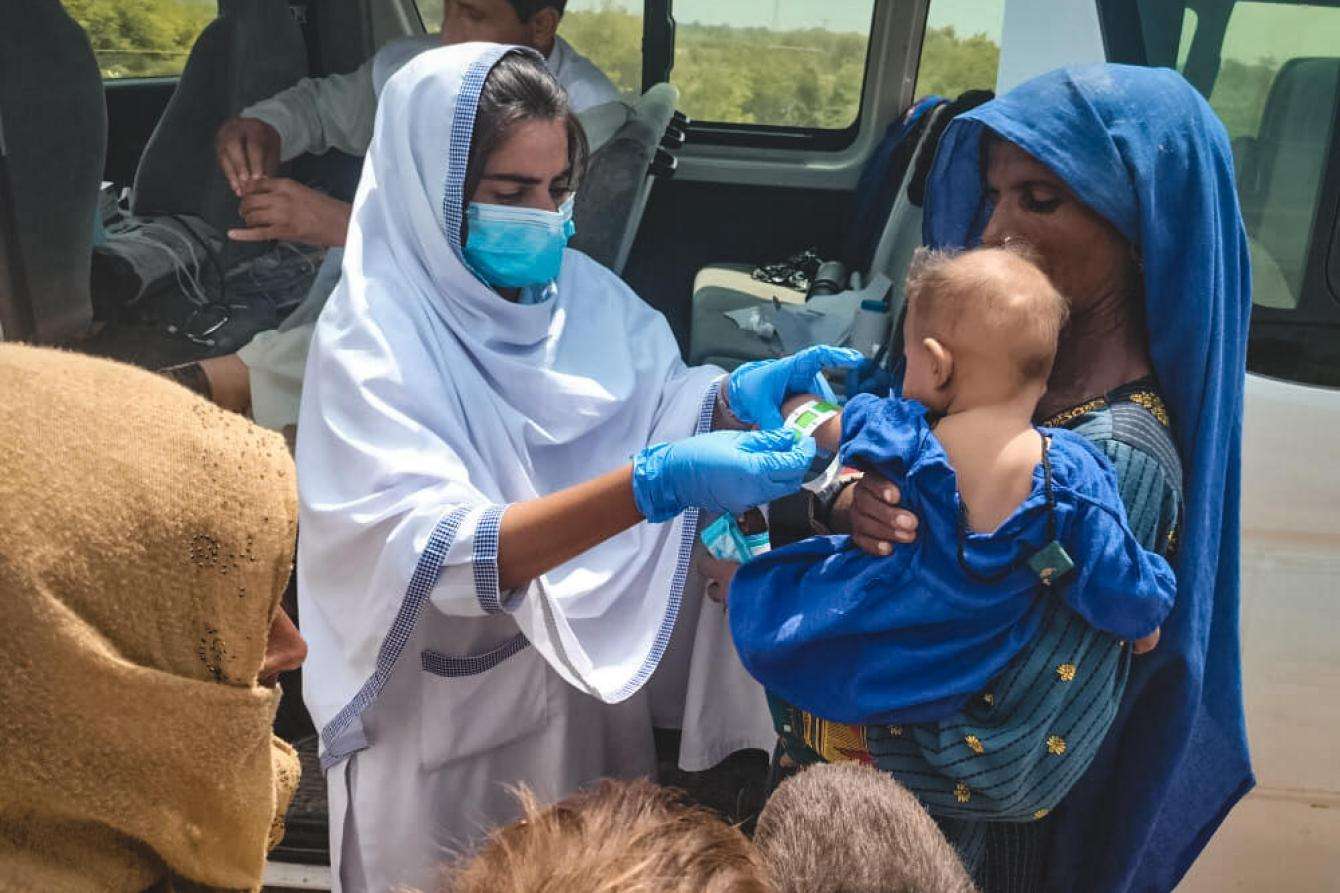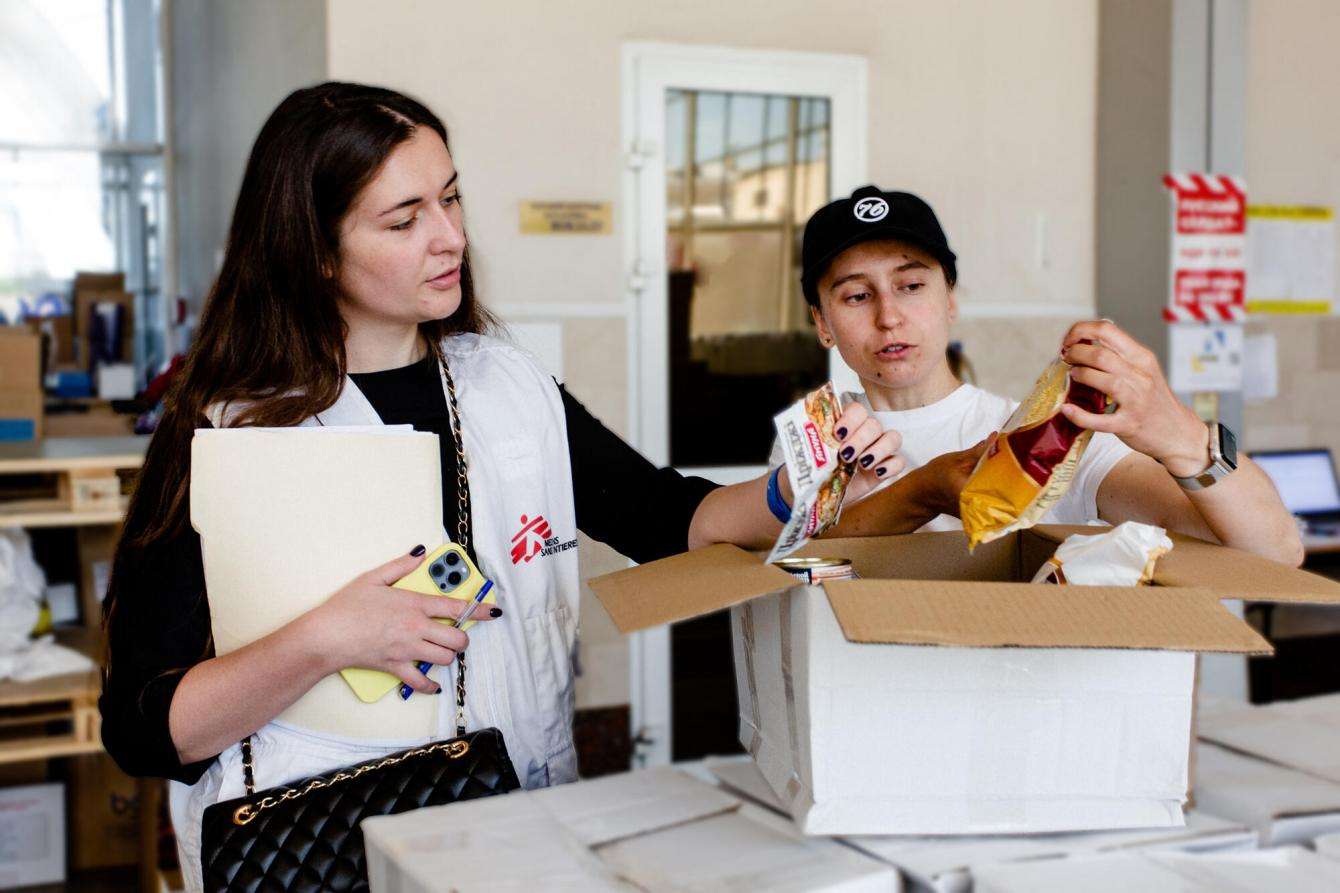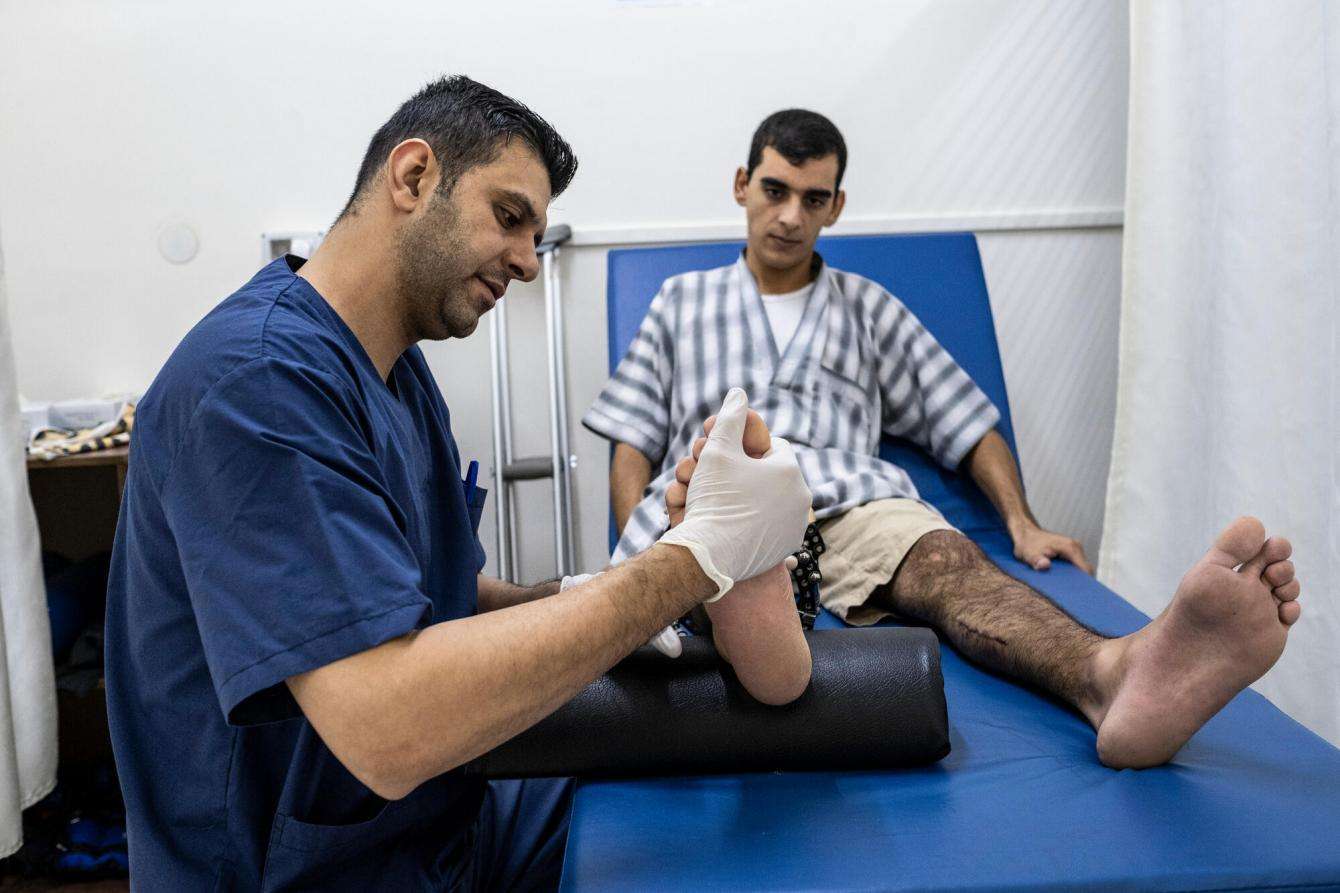Four MSF staff who put aid first in 2022
Read the stories of four locally hired MSF staff members who put aid first in the face of crisis and personal tragedy.
90% of our funding comes from individual donors. Learn how you can support MSF’s lifesaving care with a gift.
Read the stories of four locally hired MSF staff members who put aid first in the face of crisis and personal tragedy.
Over 80 percent of our staff at Doctors Without Borders/Médecins Sans Frontières (MSF) are from the communities they work in. So when a disaster strikes, it affects them too. In the face of personal tragedy and upheaval this year, our teams continued to put aid first for our patients and deliver quality, compassionate care.

Akeela's village, about three miles from the city [of Dera Murad Jamali], was completely submerged by the floods. After losing her home, she is now working with MSF’s emergency response team in the area. Here she describes why she decided to take action despite losing her family home.
“When I saw that so many people needed help and I received a call from MSF requesting support for the emergency response,” says Akeela, “I couldn’t stop myself from saying yes.”

Dr. Sasha Sholokov, an MSF doctor, had to flee his home with his wife and two-year-old son due to shelling in Mariupol, Ukraine, when war broke out in February.
“My family had to move abroad,” says Dr. Sholokov. “Because we have a small child, I told [my wife], it will be better if you take care of him and yourself. And I’ll try to manage here in Ukraine.”
After making sure his family was safe, Dr. Sholokov returned with MSF to eastern Ukraine where he continues to help people like him who have found safety in Dnipro and Zaporizhzhia.

Seven days into the war, a large building by her mother’s home was destroyed by an explosion. They packed and left for a different part of the country. But Samoilova wanted to come home. She started working with MSF, first as a translator and then in her current role connecting with and overseeing partnerships between local groups and MSF.
“I was doing something good and kind, and everyone I was working with had the same idea: to help.”

Al-Najjar’s home in Gaza was partially destroyed when his neighbor’s house was bombed. His family was still in the house when his nine-month-old son’s bedroom was hit. Al-Najjar found his son in his crib surrounded by glass and shrapnel—fortunately uninjured. He says his youngest daughter is traumatized.
“She is not able to sleep, crying all the time. I am trying to be as supportive as I can for them,” said Al-Najjar.
Al-Najjar, who manages the physiotherapy department at Al-Awda Hospital, continues to see patients who were injured during an escalation of conflict in May 2021. Many of these people have longer-term needs for physical rehabilitation and physical therapy.
Some humanitarian crises make the headlines—others don’t. Unrestricted support from our donors allows us to mobilize quickly and efficiently to provide lifesaving medical care to the people who need it most, whether those needs are in the spotlight or not. And your donation is 100 percent tax-deductible.
© Médecins Sans Frontières 2024 Federal tax ID#: 13-3433452
Unrestricted donations enable MSF to carry out our programs around the world. While we try to honor requests to earmark, should we receive more gifts than we can use for a program, we will reallocate them where the needs are greatest.
For Donors
For Supporters
For Media
For Recruits
General Interest
© Médecins Sans Frontières 2024 Federal tax ID#: 13-3433452
Unrestricted donations enable MSF to carry out our programs around the world. While we try to honor requests to earmark, should we receive more gifts than we can use for a program, we will reallocate them where the needs are greatest.
Your gift helps us provide medical humanitarian aid for hundreds of thousands of people each year.
Learn more87%
Programs
12%
Fundraising
1%
Management & General Admin

We need your support to continue this lifesaving work.